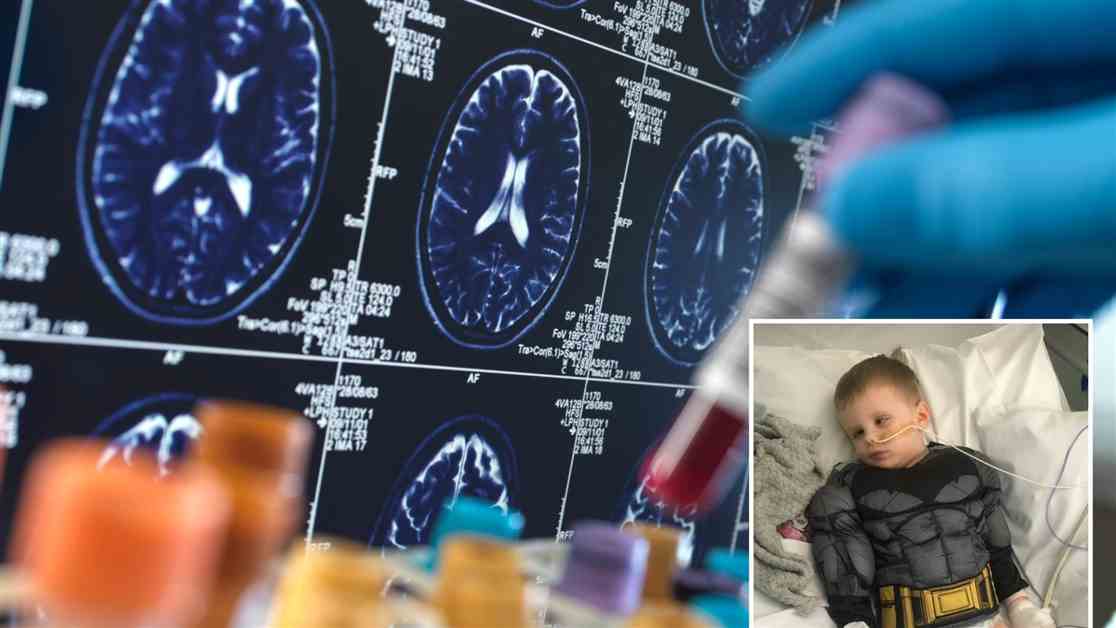Breakthrough Cancer Test Revolutionizes Diagnosis of Brain Tumours in Children
A groundbreaking cancer test has the potential to provide children with brain cancer an accurate diagnosis within just 10 minutes, according to scientists. This test could be a gamechanger for children suffering from medulloblastoma, the most common brain tumour in children, as it currently takes weeks for traditional tests to identify the specific type of tumour for appropriate treatment to commence.
Researchers from the University of Birmingham and Newcastle University have developed a new, faster, and less invasive method of diagnosing medulloblastomas. By combining MRI scans with artificial intelligence (AI), they were able to accurately pinpoint the chemical signature of each type of tumour, paving the way for quicker and more effective diagnosis and treatment strategies for children.
Medulloblastoma tumours are known for their fast growth and tendency to spread to other parts of the brain and spinal cord. Approximately 52 children are diagnosed with these tumours each year, highlighting the urgent need for improved diagnostic tools and treatment options.
The study published in eBiomedicine revealed that it was possible to identify tumours using MRI scanners and AI technology without the need for a biopsy, significantly reducing the current four-week waiting period for a comprehensive diagnosis. This innovative approach has the potential to revolutionize patient care by enabling early diagnosis, personalized treatment decisions, and reducing the uncertainty faced by patients and their families during the diagnostic process.
The new test holds promise for children like Jack Bourne, a six-year-old from Kings Heath in Birmingham, who was diagnosed with medulloblastoma after experiencing symptoms such as sickness, headaches, and difficulty walking. Jack underwent a 10-hour operation to remove the tumour, but it took over four weeks for doctors to determine the specific type of medulloblastoma he had, delaying his treatment.
The research conducted by the University of Birmingham and Newcastle University represents a significant advancement in the field of pediatric oncology, offering hope for improved outcomes and quality of life for young cancer patients. By developing faster and more accurate diagnostic methods, medical professionals can tailor treatment plans to each patient’s unique needs, ultimately enhancing survival rates and reducing the impact of cancer on children and their families.





















